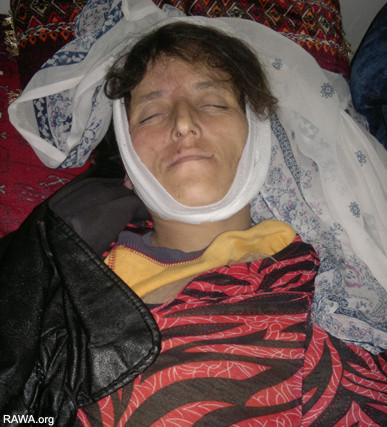By Emma Graham-Harrison
President Hamid Karzai's government has let down Afghan women, according to the new EU ambassador to Kabul, who singled out the failure to end prosecution of rape victims and other abused women for "moral crimes" as a particular "disgrace".
Franz-Michael Mellbin said that despite huge practical improvements in areas from maternal mortality to the number of girls in schools, Afghanistan was still one of the worst places to be a woman and a frontline in the global battle for women's rights.
Mellbin, who previously served in Afghanistan as the Danish envoy, declined to criticise Karzai directly but said the government overall had failed in its responsibilities to be a voice for women's rights, as conservatives opposed to women having any role outside the home gathered strength.
"We cannot be satisfied with what has been done. Right now what I feel is unfortunately very much lacking is that the government is not showing a sense of priority and urgency that we'd like to see," he told the Guardian in an interview to mark International Women's Day.
"What we are lacking is a strong official voice to counter those reactionary voices … this makes it very difficult to fight for progress. We look in vain for strong government policy."
Karzai has always described himself as a supporter of women's rights, but recently there has been heavy pressure on the fragile gains made after the Taliban's fall from power.
Last year a landmark law to prevent violence against women was pushed out of parliament, the quota of seats for women on provincial councils was cut, and a proposal to reintroduce stoning as a punishment for adultery – used more against women than men – put forward by the justice ministry.
Earlier this year, parliament passed a law that gagged victims of domestic violence by preventing relatives testifying against each other, although it was later modified on Karzai's orders.
Many women believe this is happening because political interest in Afghanistan is fading in the west as troops head home. They fear that with the complete departure of foreign forces this year, conservatives will chip away faster at their rights or simply use them as a bargaining chip in peace talks with the Taliban.
"I understand why Afghan women are very worried about the future, and they are, they constantly raise this issue with me," Mellbin said, adding that he was inspired by Afghan women's determination to seize every opportunity made available to them.
"All over Afghanistan women today are 'first movers'. Some will be the first woman in their family to go to school, others to open a business or take public office. There is a tremendous awareness among Afghan women that they are trail-blazing for the next generation, for their daughters."
He plans to make women's rights a priority during his time in Kabul, as part of the EU's "value-driven foreign policy", at least until he sees a government more focused on protecting and expanding gains so far.
"I do not subscribe to the view that silence is an option," Mellbin said. "We need to be more ambitious. Our agenda has to be continued progress, continued advancement."

Bulbul was beaten to death with sticks by her husband. (Photo: RAWA.org)
The ambassador said the campaign for the presidential election on 5 April was encouraging, with all the leading candidates to replace Karzai, who cannot stand again, pitching themselves as modernising nationalists.
"We're trying to prepare a list of issues that we would like to raise with the new government with regard to women's rights as soon as it comes into power," he said.
He plans to push for an end to the trial of women for "moral crimes", which are mostly violations of social norms, such as running away from a forced or abusive marriage. Rape victims have also been jailed for having sex outside marriage.
"[The prosecution of] moral crimes is something that is a scourge for women in Afghanistan, it means that girls and women who are victims … are further victimised by the state," he said. "Its a disgrace for any country to have such an institution."
Activists are likely to welcome Mellbin's stance, after strong criticism of western nations that fund the Afghan government but have often seemed unwilling to speak out on women's rights.
"Over the past year, through an escalating series of serious attacks on women's rights, the response from donors has largely been a deafening silence," said Heather Barr, Afghanistan researcher for Human Rights Watch.
"No government as dependent on foreign aid as this one has the luxury of not caring what donors think. Donors need to speak out quickly and forcefully every time there is an attack on women's rights. When they fail to do so it just makes it look like they don't care."



